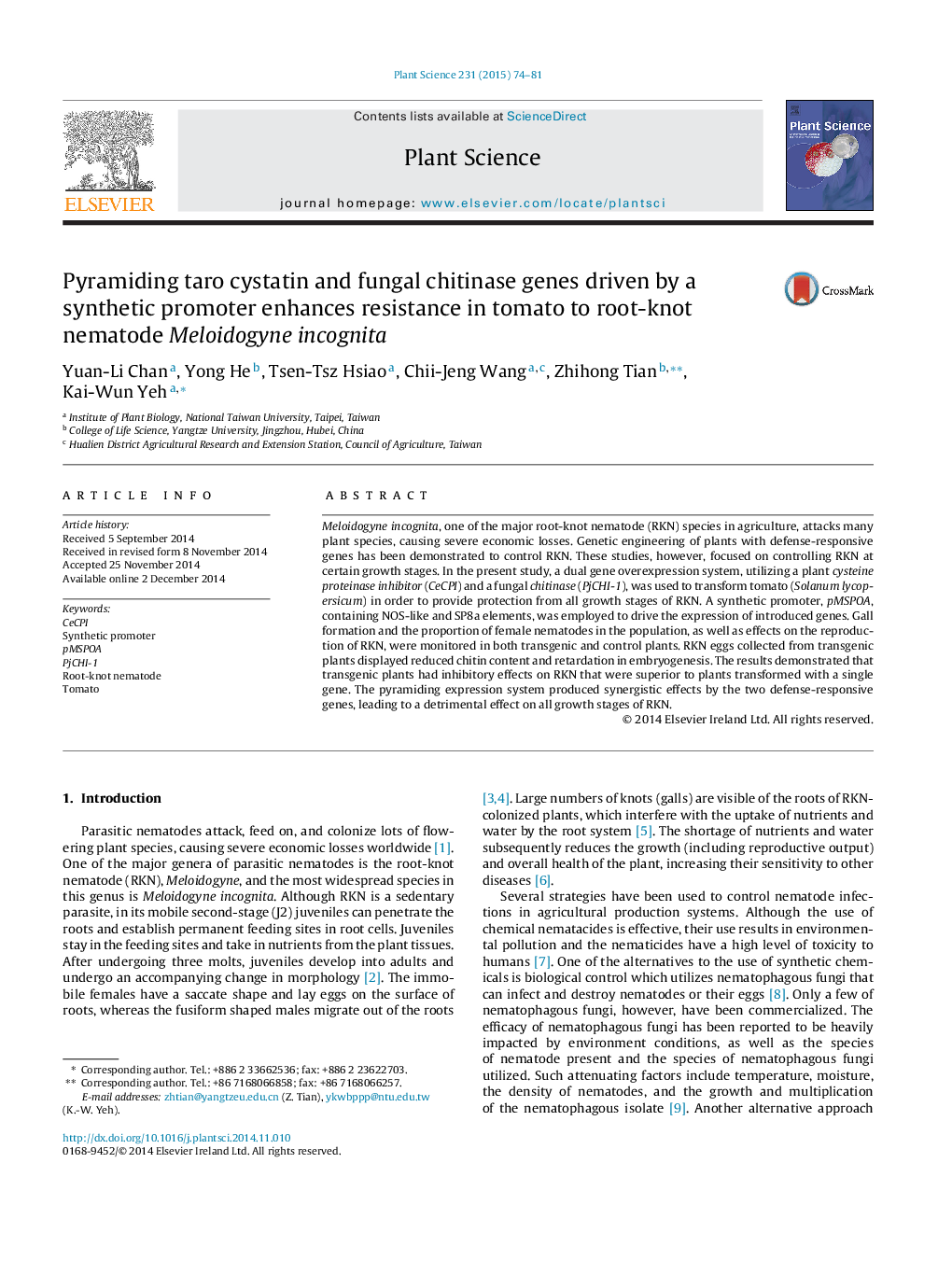| Article ID | Journal | Published Year | Pages | File Type |
|---|---|---|---|---|
| 8357931 | Plant Science | 2015 | 8 Pages |
Abstract
Meloidogyne incognita, one of the major root-knot nematode (RKN) species in agriculture, attacks many plant species, causing severe economic losses. Genetic engineering of plants with defense-responsive genes has been demonstrated to control RKN. These studies, however, focused on controlling RKN at certain growth stages. In the present study, a dual gene overexpression system, utilizing a plant cysteine proteinase inhibitor (CeCPI) and a fungal chitinase (PjCHI-1), was used to transform tomato (Solanum lycopersicum) in order to provide protection from all growth stages of RKN. A synthetic promoter, pMSPOA, containing NOS-like and SP8a elements, was employed to drive the expression of introduced genes. Gall formation and the proportion of female nematodes in the population, as well as effects on the reproduction of RKN, were monitored in both transgenic and control plants. RKN eggs collected from transgenic plants displayed reduced chitin content and retardation in embryogenesis. The results demonstrated that transgenic plants had inhibitory effects on RKN that were superior to plants transformed with a single gene. The pyramiding expression system produced synergistic effects by the two defense-responsive genes, leading to a detrimental effect on all growth stages of RKN.
Related Topics
Life Sciences
Agricultural and Biological Sciences
Plant Science
Authors
Yuan-Li Chan, Yong He, Tsen-Tsz Hsiao, Chii-Jeng Wang, Zhihong Tian, Kai-Wun Yeh,
